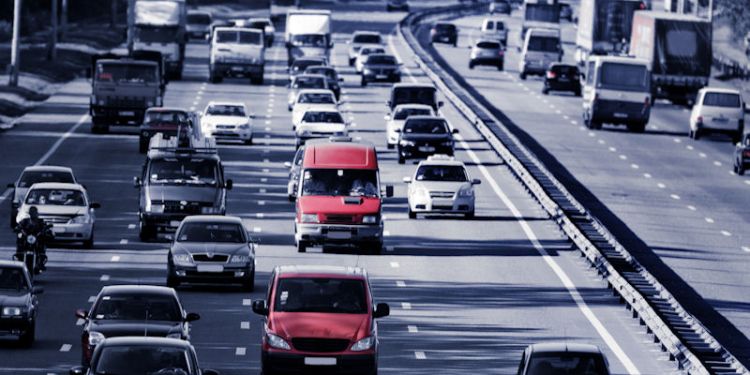Smarter urban food distribution for a healthier society

Food shortages in supermarkets at the start of the 2020 pandemic highlighted the vulnerability of current food distribution systems to sudden change. The research of Dr Eleonora Morganti, a University Academic Fellow and an expert in urban food transport, distribution and consumer behaviour, could help to ensure that all city dwellers have good access to healthy fresh food into the future.
Dr Morganti investigates how food circulates in cities. Her research focuses on vital questions about access to fresh food for different groups of citizens and how the transport of food contributes to pollution and congestion. Her unique position, working in the School of Food Science and Nutrition and the Institute of Transport Studies, provides policy makers and businesses with the insights to create more resilient, greener urban food distribution systems.
The restrictions during the 2020 pandemic have caused big shifts in the way people consume food in cities and highlighted the need for research into how to build more robust food distribution systems in the future. “Before the pandemic, one third of food in cities was consumed ‘on the go’ in cafés, stations and restaurants, even at the gym” explained Dr Morganti. “Now, in the pandemic, supermarkets are having to provide one third more than before, which is a big change to the distribution system.” We are also eating different foods and demanding more online deliveries, which is having a knock-on effect on local food producers and the number of delivery vans on city streets. “In Yorkshire, before lockdown there were 22 producers of goats cheese, supplying restaurants and farmers markets, but within days this was down to two. Restarting goats milk production takes months,” said Dr Morganti. “So producers can’t respond quickly to changes in demand, which affects their viability as a business.”
Before the pandemic, one third of food in cities was consumed ‘on the go’ in cafés, stations and restaurants, even at the gym. Now... supermarkets are having to provide one third more than before, which is a big change to the distribution system.
The types of food people want has also changed rapidly during the pandemic, as more people started baking and cooking from raw ingredients at home. Customers have also switched to online buying which needs a rapid increase in the number of delivery vehicles and demands that producers and retailers develop online marketing skills to reach dispersed consumers through internet advertising. This, and responding to customers stockpiling certain food items at the start of the national lockdown, was a further strain on the food distribution system. These unexpected shocks to the food system can cause shortages and rapid price changes and the stability of businesses from producers to retailers.
Through analysis of food surveys and transport data sets, Dr Morganti’s research can highlight for policymakers how they can encourage better access to fresh food throughout the city and how delivery systems can be better managed to create less pollution. Of real interest is the ‘last food mile’ from market to restaurant or retailer. Dr Morganti is working on a proposal with Leeds City Council and Kirkgate market to design a delivery system that cuts down on the number of delivery vehicles through coordinating and combining deliveries, which could reduce air pollution and travel costs for local businesses. This project is strengthened by the strong interdisciplinary research culture at the University of Leeds and involves colleagues from the Business School, law, geography and food science, brought together within the University’s Global Food and Environment Institute (GFEI).
She has also researched the ways in which large hospitals and schools order food and the effects and influences on purchase decision making for those institutions within cities.
Fresh food is not always equally available to all groups within a city and issues like ease of mobility and distance to shops can affect consumer choices. Dr Morganti led an N8 AgriFood funded collaboration with Newcastle and Liverpool universities to look at elderly access to food within cities. “Introducing the concept of ‘mobility’ to urban food supply could help to provide social interaction for elderly people, while also reducing the need to travel by car,” Dr Morganti explained. “Alternatively, delivering local produce through a vehicle taking a single trip could help to reduce emissions.” The work took a multidisciplinary approach involving psychologists and dieticians as well as transport experts. They discovered that many current policies overlook the importance of ease of mobility and transport for this section of society.
The changes to food delivery and consumer habits during the pandemic has focused attention on how our food systems function and generated new interest in this novel area of research. Much more information is needed about the growth of deliveries and the impact of online shopping on our cities. “What is missing is data at a large scale about food delivery vans,” said Dr Morganti. “We currently don’t know enough about our food delivery channels. After COVID-19 we need to diversify our delivery channels again because to be resilient we need a variety.”
Contact us
If you would like to discuss this area of research in more detail, please contact Dr Eleonora Morganti.

